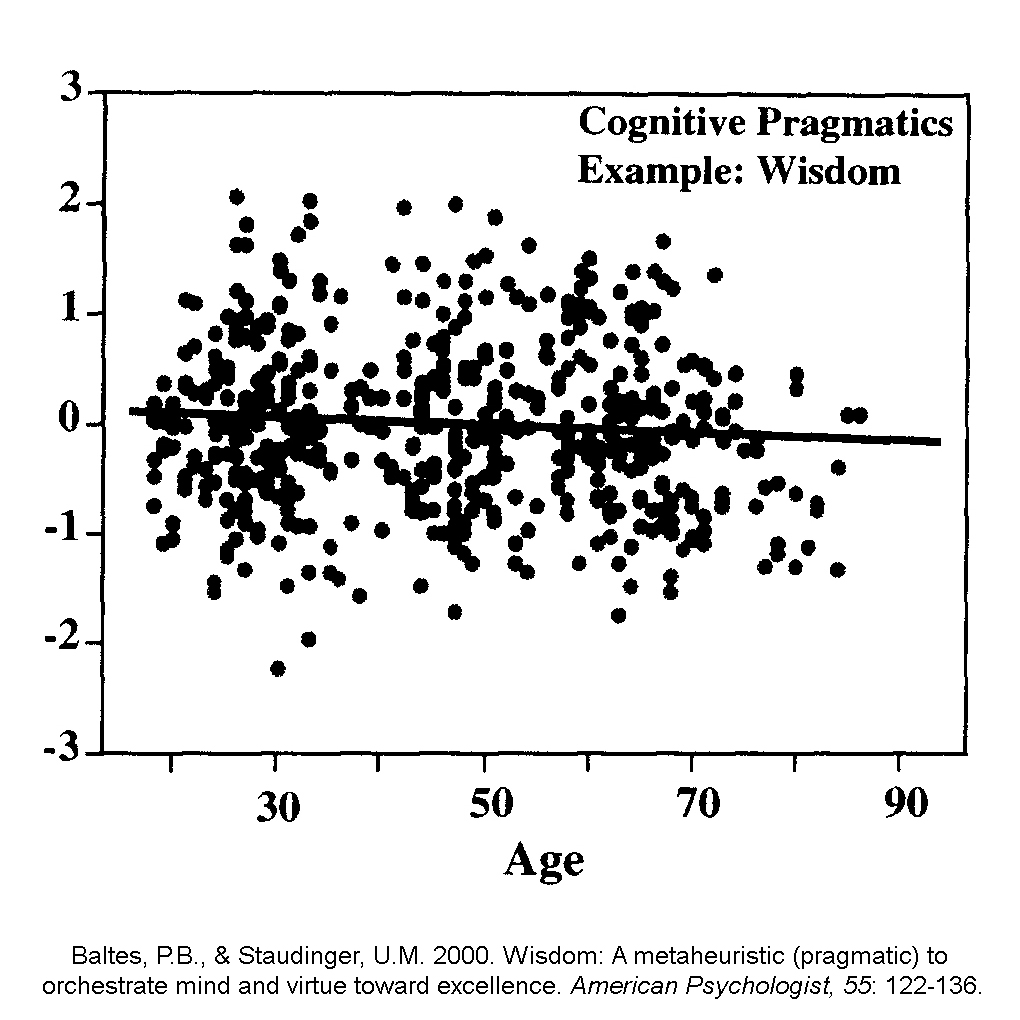The Manner of Happiness, Paving Your Own Path, The Habit of Reflection
The Disciple-Leader Newsletter #47 // December 17, 2023
Discipleship. Leadership. Mental Performance.
DISCIPLESHIP
“And it came to pass that we lived after the manner of happiness."
2 Nephi 5:27
The scriptures talk frequently about happiness. Consider these few verses:
I would desire that ye should consider on the blessed and happy state of those that keep the commandments of God. For behold, they are blessed in all things, both temporal and spiritual; and if they hold out faithful to the end they are received into heaven, that thereby they may dwell with God in a state of never-ending happiness. (Mosiah 2:41)
And it came to pass that I did go forth and partake of the fruit thereof; and I beheld that it was most sweet, above all that I ever before tasted. Yea, and I beheld that the fruit thereof was white, to exceed all the whiteness that I had ever seen. And as I partook of the fruit thereof it filled my soul with exceedingly great joy; wherefore, I began to be desirous that my family should partake of it also; for I knew that it was desirable above all other fruit. (1 Nephi 8:11-12)
Adam fell that men might be; and men are, that they might have joy. (2 Nephi 2:25)
It's clear that happiness is really important to God. Or as Elder Neal A. Maxwell put it, "God is serious about joy.
There is one verse that is of particular interest to me: "We lived after the manner of happiness."
What does it mean to live after the manner of happiness? The combination of the gospel of Jesus Christ and social science research paints a clear picture.
Psychologist Martin Seligman is known as the pioneer of the field of Positive Psychology, the scientific study of human flourishing. His career of researching, writing, and teaching has spanned over 50 years. His most recent book, Flourish, is the culmination of his life's work. In it, he presents his Well-Being Theory. He attempts to answer the question, "Based on all the available research, what is happiness, and what enables it?"
His theory is PERMA, a mnemonic that outlines the 5 essential building blocks of happiness. Think of them as macronutrients. WebMD defines macronutrients as: "The nutrients that your body needs in large amounts, which include fat, carbohydrates, and protein. Macronutrients contain the components of food that your body needs to maintain its systems and structures. You need all three macronutrients as part of a healthy diet, so you shouldn't exclude or seriously restrict any of them."
Similarly, PERMA outlines the 5 macronutrients of happiness.
PERMA stands for Positive Emotion, Engagement, Relationships, Meaning, and Achievement. Below, I'll provide a brief definition for each of these elements.
Positive Emotion: Experiencing positive emotions in your life such as gratitude, optimism, love, hope, forgiveness, excitement, pleasure, etc. This also includes enjoying the companionship of the Holy Ghost.
"But the fruit of the Spirit is love, joy, peace, longsuffering, gentleness, goodness, faith, meekness, temperance" (Galatians 5:22-23).
Engagement: This involves being engaged in a challenging task that fully utilizes your gifts and strengths. It's being involved in something that you'd do for its own sake rather than for what you might get out of it. You genuinely love it. The activity is its own reward.
"Verily I say, men should be anxiously engaged in a good cause, and do many things of their own free will, and bring to pass much righteousness; For the power is in them, wherein they are agents unto themselves. And inasmuch as men do good they shall in nowise lose their reward" (D&C 58:27-28).
Relationships: You've probably heard of The Harvard Study of Adult Development. It's one of the longest longitudinal studies ever conducted (85 years and still going). The study followed Harvard graduates from 1939-1944 into their 90's, looking at all aspects of their health and well-being. The goal of this decades-long study was to obtain clarity on what really impacted happiness and flourishing. George Vaillant, the principal investigator of the study, summarized 85+ years of research into five words: "Happiness is love. Full stop."
Seligman wrote, "Very little that is positive is solitary (alone). When was the last time you laughed uproariously? The last time you felt indescribable joy? The last time you sensed profound meaning and purpose? Even without knowing the particulars of these high points of your life, I know their form: All of them took place around other people."
"And he commanded them that there should be no contention one with another, but that they should look forward with one eye, having one faith and one baptism, having their hearts knit together in unity and in love one towards another" (Mosiah 18:21).
Meaning: This refers to having a connection to something bigger than our lives or our lifetime. In its strongest manifestation, it refers to living in alignment with our purpose/mission in life, as well as our connection with God.
"This life is the time for men to prepare to meet God" (Alma 34:32).
"My dear friends, premortally you and I were each given wonderful missions to fulfill while we are here on earth. We have opportunities to fulfill our mortal missions, but we don’t have to. No one will make us. We have our agency to choose how we spend our time and energy, our talents and resources ... The choice is yours and mine. Will we choose to do whatever it takes to fulfill the wonderful missions for which we were sent to earth? ... You were sent to earth at this precise time, the most crucial time in the history of the world, to help gather Israel. There is nothing happening on this earth right now that is more important than that. There is nothing of greater consequence. Absolutely nothing. This gathering should mean everything to you. This is the mission for which you were sent to earth." - President Nelson
Achievement: The process of personal mastery, honing a craft, and accomplishing goals for a good cause.
"Therefore, what manner of men ought ye to be? Verily I say unto you, even as I am" (3 Nephi 27:27).
The PERMA Theory of Well-Being is really interesting. But does it hold up with what God has revealed about happiness? The Book of Mormon explains that the Nephites lived after the manner of happiness, but does it show how they did? Let's look for evidence of PERMA in The Book of Mormon, specifically throughout chapter five of 2 Nephi, the same chapter in which Nephi mentioned they lived after the manner of happiness.
PERMA in 2 Nephi 5
“And it came to pass that we lived after the manner of happiness." - v.27
Positive Emotions in 2 Nephi 5
"And the Lord was with us; and we did prosper exceedingly." - v.11
On the surface, you might read that they prospered and believe that they had their physical needs taken care of. Sure, that's a part of what it means. But living a comfortable life is not the scriptural meaning of prosperity. Lehi gave the clearest definition of what it really means to prosper by contrasting it with its opposite: "For the Lord God hath said: Inasmuch as ye shall keep my commandments ye shall prosper in the land; but inasmuch as ye will not keep my commandments ye shall be cut off from my presence" (2 Nephi 4:4). Thus, prosperity is enjoying the presence of God (or the Holy Ghost). And wherever the Holy Ghost is, His fruits will be apparent (Galatians 5:22-23). Positive emotions, then, were clearly in abundance among the Nephites.
Engagement in 2 Nephi 5
"And I did teach my people to build buildings, and to work in all manner of wood, and of iron, and of copper, and of brass, and of steel, and of gold, and of silver, and of precious ores, which were in great abundance ... And it came to pass that I, Nephi, did cause my people to be industrious, and to labor with their hands." - v.15,17
They were anxiously engaged in challenging tasks that utilized their gifts and strengths.
Relationships in 2 Nephi 5
"Wherefore, it came to pass that I, Nephi, did take my family, and also Zoram and his family, and Sam, mine elder brother and his family, and Jacob and Joseph, my younger brethren, and also my sisters, and all those who would go with me. And all those who would go with me were those who believed in the warnings and the revelations of God; wherefore, they did hearken unto my words." - v.6
Rarely, does Nephi take the time and limited space in his plates to list out the names of family members and friends. In fact, this verse is the only specific reference that Nephi had sisters as well as brothers. I find it significant that he mentions his family and friends here in this chapter. Why here? I believe he's trying to emphasize the importance of relationships in this chapter where he's outlining what it looks like to live after the manner of happiness.
Meaning in 2 Nephi 5 (throughout the whole chapter)
Everything they did was in service of their God
They kept all the commandments.
They built a temple.
They brought and wrote scripture.
They consecrated teachers and priests and established the church.
Achievement in 2 Nephi 5
"And I, Nephi, did build a temple; and I did construct it after the manner of the temple of Solomon save it were not built of so many precious things; for they were not to be found upon the land, wherefore, it could not be built like unto Solomon’s temple. But the manner of the construction was like unto the temple of Solomon; and the workmanship thereof was exceedingly fine."- v.16
Nephi didn't just build a temple. He went all out in making sure it was the best he could do. He exhausted his potential. He created a masterpiece.
I believe Seligman's PERMA theory of happiness is true. It reinforces the pattern outlined in The Book of Mormon. God has established a manner of happiness. PERMA outlines the macronutrients.
Most importantly, central to our happiness is Jesus Christ. "The joy we feel has little to do with the circumstances of our lives and everything to do with the focus of our lives." - Russell M. Nelson
LEADERSHIP
“Many people won't attempt something unless they can find an example of someone else who is already doing it. Rely on this type of thinking too much and you'll never do anything interesting. Your path through life is unique. It is important to extract lessons from the experiences of others, but you can't wait for a perfect example to take action. You are the example.”
James Clear
Lin-Manuel Miranda is one of the most successful and prolific writers in the history of music. Known best for Hamilton, he broke out as a star in the musical theater world after writing his first musical, In The Heights. In a 2016 interview, he was asked how has developed the attribute of resilience. His answer is amazing:
“It’s forged in part by, I couldn’t see a way for me to have a career in musical theater based on the musicals that already existed. I don’t dance well enough to play Bernardo, or Paul in the chorus line, and I don’t have an operatic enough voice to play The Man of Le Mancha. And if you’re a Latino dude, that’s all you get. Or that’s all you got for a while. That was just the reality. (During) my senior year in high school, the musical called The Capeman written by Paul Simon came out. It starred Marc Anthony, Ruben Blades, etc (Latino actors). If you were to write my dream collaborators and cast, you’d have created The Capeman. And it came and went. It was a notorious Broadway flop. And it was also, in addition to opening and closing real quickly, a slap across the face of, hey, no one is going to write your dream musical. No one is going to do it for you. And that’s when I think In The Heights was born out of the ashes of The Capeman. It was out of the ashes of nobody is going to write your dream thing for you. You’ve got to make it … I realized that the only way to have a career in this world that I loved (musical theater) was to write it. And that’s what In The Heights was. It was my way of writing a Latino storyline in which we never played gang members once.”
There just wasn't a path for Lin-Manuel Miranda to have a career on Broadway as a Latino. Nobody had done it. He didn't have an example to follow.
So he forged his own path.
He became the example.
So can you.
MENTAL PERFORMANCE
"The unexamined life is not worth living."
Socrates
Organizational Psychologist Adam Grant has written, "Wisdom doesn’t come from experience. It comes from reflecting on experience."
To emphasize his point, Grant shared an image of a graph taken from a 2000 study that found there was no correlation between age and wisdom. Here's that graph.
There is serious power in self-reflection. Without reflection, there is no wisdom. Our life experience is in vain if we don't take the time to reflect on it.
The scriptural word for reflection is ponder. Consider how God feels about us developing the habit of reflection. The scriptures instruct, "Ponder upon the things which you have received" (D&C 30:3). Over and over, we find that moments of revelation and clarity are preceded by people setting apart intentional time to ponder (1 Nephi 1:11; D&C 76:19; D&C 138: 1-11).
Develop the habit of reflection. Examine your life. Think about how you think (metacognition). Always involve the Lord.
To kickstart you, I'll share two of my favorite self-reflection exercises that are particularly helpful as the time for New Year's resolutions are upon us. If taken seriously, these can make a major difference in your life. These exercises come from Shane Parrish.
Imagine you were fired as CEO of your life today and someone exceptional was brought in to take over. What do you think they would do differently? What would they see as getting in the way of success? What would they do more of?
Imagine you were being followed around and documented all day by a professional film crew. What they filmed would be shown to the world for everyone to know who you are. For example, if a film crew was with you, you might be more likely to wake up early and less likely to mindlessly scroll social media. Consider what actions you would want a film crew to document and which ones you would prefer they not see.
Disciple-Leadership: Jesus-led. Lead like Jesus.







